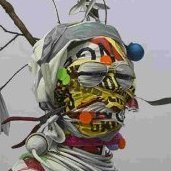Lack Of Local Wisdom Teachers Decried
-
Recently Browsing 0 members
- No registered users viewing this page.
-
Topics
-
-
Popular Contributors
-
-
Latest posts...
-
64
Crime Two Lebanese Men Arrested on Koh Samui for Drugs
Long jail tine then deportation and life time ban from entering Thailand again. -
9
My Bangkok Bank experience of recent
Why not open another account at a different bank, just in case.... -
9
My Bangkok Bank experience of recent
Last I heard he moved back to New Zealand. More than 10 years ago. But I have also noticed the trend that the frozen accounts are almost all in Pattaya. -
10
-
4
-
86
Americans seek escape for political reasons at record numbers
You'll see, nobody is "winning". Stock market will crash after GOP/MAGA deregulation and tweaking the economy willy nilly and ignoring solid data from established economists. Firing agents because Trump doesn't like the numbers is a sign of tweaking for short term gain. GOP do it all the time. Heat up the market, pump full of hot air and bad data and then?? IT WILL CRASH. So NOBODY IS WINNING, they just tell you what you want to hear? Get it? MARK MY WORDS, MAGA/GOP is raping he nation and will leave it in a shambles in 5 or so years. STOCK MARKET WILL HEAT UP AND CRASH By the way, the function of government in society is not to "win". so many of these MAGA nuts drank the Fux news right wing propaganda hook, line and sphincter. Grow up.- 3
-

-

-

-
-
Popular in The Pub



.thumb.jpg.b54783ad387f65d779e04f535fcfeee9.jpg)









Recommended Posts
Create an account or sign in to comment
You need to be a member in order to leave a comment
Create an account
Sign up for a new account in our community. It's easy!
Register a new accountSign in
Already have an account? Sign in here.
Sign In Now